8 Common Homophonic Puns in Chinese Spring Festival – The Must-eat Lucky Food Checklist
Chinese New Year, known in China as the Spring Festival, has an abundance of unique traditions associated with it. Some of these traditions are more widespread than others. Among the many New Year’s customs are a few whose meaning is derived from puns of Mandarin words. Here is a list of 7 must-eat food which is also homophonic puns in the Chinese spring festival.
1. “饺” (jiǎo , dumpling) and “交” (jiāo, meet, at)
This is first in the list of homophonic puns in Chinese. In China, people in the north used to eat 饺子(jiǎo zi, dumpling) at midnight on the last day of the Lunar Year. Eating 饺子(jiǎo zi) is a family activity that has the meaning of good luck, happiness, and fortune.
The pronunciation of 饺子 is similar to that of 交子; 交 means “meet, at.” 子 means 子时, the first of the 12 two-hour periods. It starts at 23:00 and ends at 01:00. In the traditional time system, one day is divided into 12 equal parts, each of which lasts two hours. They are named after the 12 Earthly branches (地支). The first starts at 23:00 of the 24-hour system used today. It is the beginning of one new day. So 交子 means that the new year replaces the old one at the beginning of the first hour (when the time meets the first hour).
Besides, 交 and 子 together is just right a word 交子. It is a kind of currency used in the Song dynasty, and therefore it means money. And the shape of 饺子(jiǎo zi) looks like old Chinese gold or bronze made coin. Therefore, 饺子 symbolizes richness and abundance.
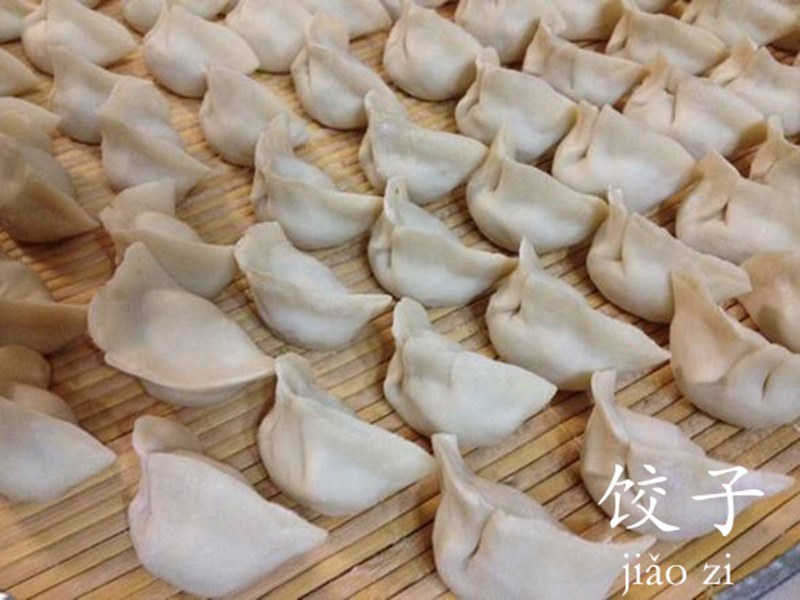
2. “鱼” (yúFish) and “余” (yú, Surplus)
Nián nián yǒu yú – 年年有余 “There will be an abundance every year” homophonous with 年年有鱼 “There will be fish every year” As a result, fish are eaten and used as typical decorations during Chinese New Year.

3. “年糕” (nián gāo , Year Cake) and “年高” (nián gāo, Year Higher)
年糕 (Nián gāo) and 年高 (Nián gāo) from 年年高升 nián nián gāoshēng or “raised higher each year” leading to the belief that those who eat 年糕 should have greater prosperity with each coming year.
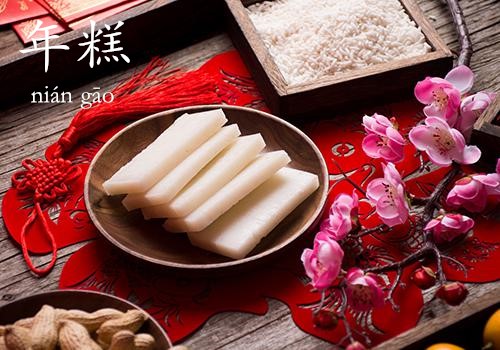
4. “汤圆” (tāng yuán, Dumpling thingys) and “团圆” (tuán yuán, Reunion)
汤圆 (tāng yuán) – At times of reunion, such as Spring Festival, it is customary to eat sweet round dumplings called tangyuan (汤圆). It’s a tradition to eat 汤圆 during the Lantern Festival, which is the last day of the Chinese New Year celebration.
The round shape of 汤圆 and the bowls emphasizes unity, in addition to the similarity of their name with the word for the reunion, “团圆” (tuányuán). So they eat “tangyuan” to get together with classmates and family. Also, as students were quick to point out, “Tangyuan are round, and money is round, so it means more money.”
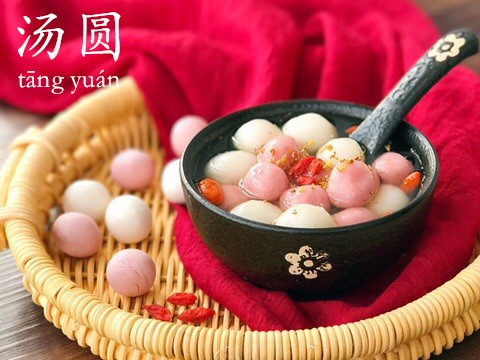
5. “生菜” (shēng cài, Lettuce) and “生财” (shēng cái, Make Money)
生菜 – Traditionally, the first meal of the New Year is vegetarian with a variety of ingredients. The meal is served with lettuce (生菜, shēngcài) because the word is near homophonous to “生财” (shēng cái), “to make money.” The Lettuce shows up in other New Years’ customs as well. In the traditional New Year’s Day, lion dance lettuce and red envelopes of cash are offered to the lion.
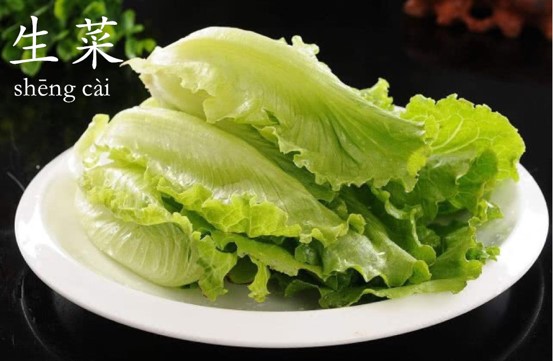
6. “发菜” (fàcài, Long Thread Moss) and “发财” (fācái, Get Rich)
发菜, thin black hair-like algae, is a feature of Spring Festival cuisine because its name is a near-homophone of “发财” (fā cái), meaning “prosperity.”
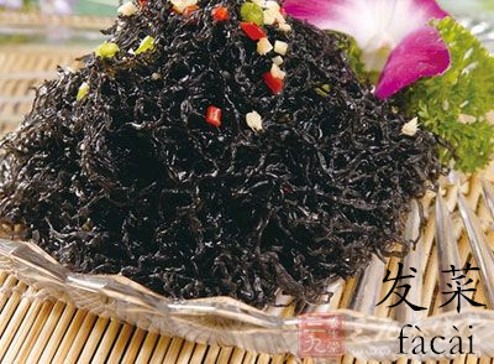
7. “桔” (jú, Tangerine) and “吉” (jí, Lucky)
So the Chinese like to give and eat tangerines as a way of bringing good luck (and money). 大吉大利 (Dà jí dà lì) means “big luck big profit,” so the bigger, the more tangerine, the more the luck.
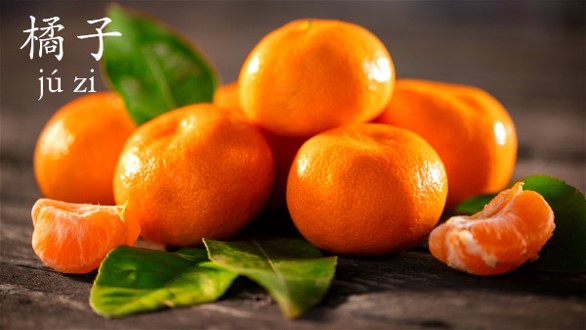
Besides the food which is derived from puns of Chinese words with luck, there are also many other homophonic puns in the Chinese Spring Festival.
Fú dào le – 福到了 “fortune has arrived” and 福倒了 “fortune is upside down,” the latter referring to the ubiquitous character 福, which when displayed upside down denotes one’s good fortune has arrived. It is common practice to hang the character upside-down on doors during the Spring festival.
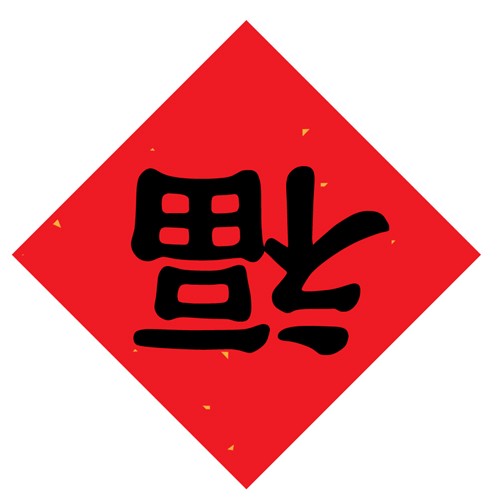
Naturally, in the new year, people are forbidden to mention anything with unlucky meanings. For example, when someone breaks some glasses or dishes on the floor (which is regarded as a bad thing in the new year), we will have to quickly say something nice to accompany it, such as 岁岁平安(suì suì píng’ān; means harmony and safely year-round). It is because in Chinese 碎 “to break” has a similar pronunciation as 岁 (suì) “year.” So if something unlucky happens to break, you can say 岁岁平安 at once.
Charming customs, aren’t they? Since there many characters or words that sound the same or similar in Chinese, the art of clever wordplay and use of homophonic puns in Chinese is seen quite frequently.





This Post Has 0 Comments